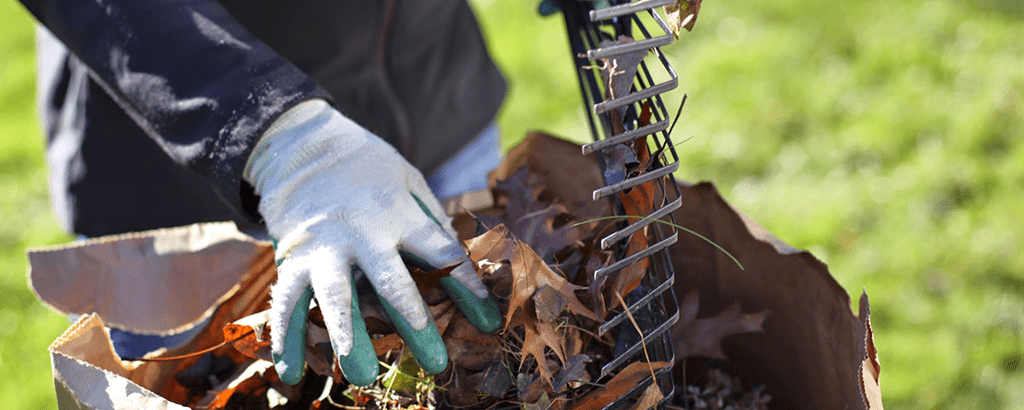Top 10 tips for fall garden cleanup

As another summer comes to an end, most homeowners see their vegetable gardens and flower beds lose their luster. It is tempting to wait until spring to tackle the chore of removing those frost-bitten leaves and the occasional overripe tomato left on the vine. However, proper cleanup done in the fall can improve overall plant health for the following year, aid in minimizing unwanted pests, and eliminate soil-borne diseases that can overwinter in even the coldest regions.
Make these 10 tips part of your fall routine to improve the productivity of fruiting plants and enhance the beauty of ornamentals for next year’s growing season.
Clean up fallen fruit or vegetables from beneath trees, tomato plants, and other edibles.
Remove annual flowers to prevent them from reseeding.
Cut back perennial flowers to eliminate hiding places for slugs and other unwanted pests.
Chop up leaves with your lawn mower and spread the leaf mulch over garden beds to stop weeds and protect plants from frosts that can cause the ground to heave in cold regions.
Rake remaining leaves to prevent compaction over winter, which can suffocate grass and lead to dead spots.
The proper summer mowing height for lawns is 3 inches, according to Kevin Jarek, Crops, Soils, & Horticulture Agent with the University of Wisconsin Extension. However, the last cut of the season should be 1.5 inches tall to prevent grass from matting down and creating an optimal setting for fungal diseases. A lower fall mowing height also can minimize pests like voles from tunneling beneath snow.
Water newly planted trees thoroughly before the ground freezes. This is especially true for evergreens like boxwood, junipers, and arborvitae, which continue to lose moisture throughout the winter. Consider spraying these types of evergreens with an anti-desiccant spray to prevent winter burn and die-back, or wrap them in burlap.
Detach and drain garden hoses to prevent burst pipes, leading to expensive home repairs.
Wrap the trunks of newly planted fruit trees to prevent the freezing of bark following occasional high temperatures in the winter season. This damage is called sun scald. Wrapping trunks also helps deter rabbits and rodents from nibbling on the bark.
Lastly, place all your plant debris in a compost bin or pile. Over time, it will break down to provide what many gardeners refer to as nutrient-filled “black gold,” which they will mix in their soil to aid plant growth. However, do not include diseased plant material, as those diseases can survive and re-infect next year’s plantings. Bag and discard them.
Following these simple tips will promote a healthy and beautiful garden the coming year. It also will give you a head start next spring when you are most eager to get your hands in the dirt. Happy gardening.
This article compliments of Secura Insurance Companies, A Bolder Insurance partner.






